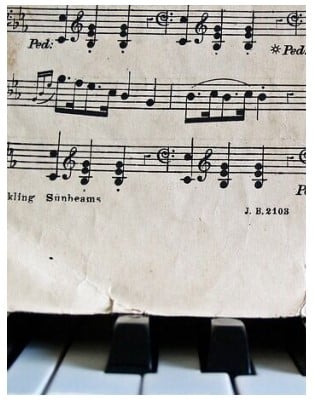
Many dyslexics love listening or playing music by ear but struggle with reading by sight.
“I’m dyslexic, so the notes just jump out at me. It’s the same with words too. That’s why the Key Editor in Cubase is the best thing for me as I see things in shapes and colors.”
— Grammy Award-winning composer producer Lorne Balfe
Here in the United States, it’s pretty uncommon to hear about dyslexia and music from the research community, but for some it’s a huge part of their lives and challenges (especially with music reading) have been noted by many.
LOVING MUSIC BUT DIFFICULTY READING BY SIGHT
Just as as some people love listening to stories, but avoid reading print books, many dyslexics love listening or playing music by ear but struggle with reading by sight; some may not be able to read at all.
Music Professor Jennifer Misha reviewed some of the curious clinical reports about people who had strokes and lost the ability to read music, but could still read text, and vice-versa. Text-reading and music-reading areas in the brain are not identical, but at least among dyslexics, it does seem common to also have trouble reading reading music.
WHY IT’S IMPORTANT TO KNOW THAT READING MUSIC IS DIFFICULT FOR DYSLEXICS?
First, because reading music is often an individual’s first introduction to music, difficulty reading music may lead some to wrongly conclude that a serious career in music isn’t for them. But there are many professional musicians who have difficulty reading music.
Many developed workarounds, others gave up on reading music completely, instead leveraging their other strengths in music, such as playing by ear.
What is playing by ear? It’s listening to music, then being able to sing it or play it on a musical instrument. If you can’t play by ear, the whole process may seem somewhat magical to you, but for many dyslexic musicians who struggle with reading music, it can be their super-power and a source of great enjoyment with music.
WHY READING MUSIC IS DIFFICULT
Why is reading music so difficult for many dyslexics? Some experts have suggested that the visual crowding aspects of music definitely makes reading and sight reading difficult. Like reading words where letters are crammed together can be difficult if not impossible (a visual crowding effect according to scientists),
Reading abstract symbols, then translating them in real time to the movements of fingers is an understandably difficult task. Some individuals may be able to sight read vocal music, but have trouble with, for instance, piano music which involves two hands doing different things at the same time and hand positions that are in mirror image.
Musical notation by its very nature is conveying lots of information at once. In piano, a note is conveying pitch as well as position on the keyboard, but it also needs to be interpreted within the rhythm of the piece and overall music phrasing and musical message. No wonder if you’re good at playing by ear, you prefer to do that!
WORKAROUNDS FOR READING MUSIC
To overcome the working memory overload, some may listen to a piece over and over again as they learn the shapes and colors and emotional associations of the music then learn the played or sung sequences of notes within the music and interpret it to make it their own.
This strategy is like the teaching strategy of ‘chunking’ where you take information and break it down into smaller bits.
Many popular music curricula like Suzuki involve repetitive listening as part of music learning. Other approaches use color coding for notes and phrases.
There is an Instructable posted about how one person just took 6 colored pencils, then color coded the music.
There’s also a free short Teachable class called Teaching Dyslexic Music Learners.
If a student has a great deal of finger confusion, but is motivated to learn to play music, learning music can serve two purposes – enjoyment of learning to make music for its own sake, and music to improve all sorts of things, fine motor planning and sequencing, ear eye-motor coordination, pitch and rhythm, and the list goes on.
There may be particular gifts among dyslexic people that allow them to be well-suited to musical performance and composition. The important thing is not to let the challenges get in the way of the areas of excellence; some of the most talented musicians and music creators in the world are dyslexic. Leverage strengths and find strategies that work for you. For more on music and dyslexia, check out our library articles tagged with “music”.














